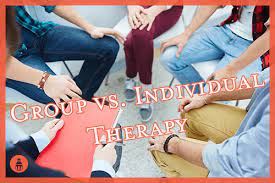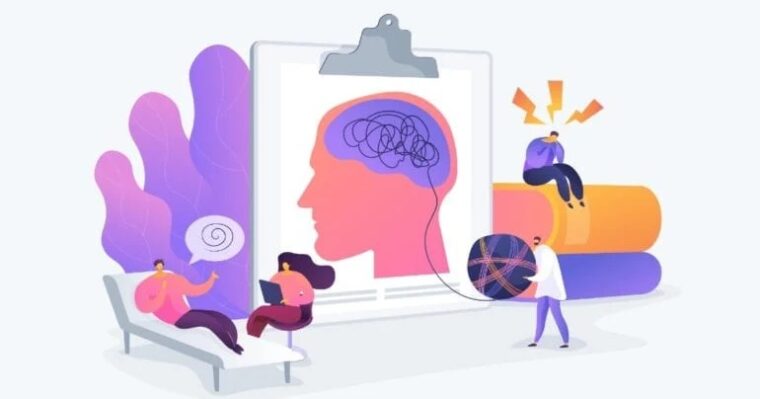
Benefits of mental health counseling will be discussed in this article. Everyone who has worries about their mental health at any time is eligible for mental health counselling, not just those who struggle with their mental health. Mental health counselling might help you if you struggle with stress in your life, marital issues, or anything else that makes you anxious.
Top 8 Benefits of Mental Health Counseling In 2022
In this article, you can know about mental health counseling here are the details below;
The counselling procedure is comparable to a classroom setting. The patient gets new talents and discovers more about who they are. In order to comprehend the available treatments for problems like depression, eating disorders, and anxiety, counselling may also involve learning about those conditions.
What Are The Eight Advantages of Mental Health Counseling?
- Enhanced interpersonal and communication abilities
- Increased self-esteem and self-acceptance
- The capacity to modify harmful routines and behaviours
- More appropriate emotional expression and control
- Relieving symptoms of anxiety, depression, or other mental health conditions
- Enhanced self-assurance and decision-making abilities
- The capacity to handle stress more skillfully
- Better ability to resolve conflicts and solve problems
Reasons to Consult a Counselor
You can discuss social, emotional, or behavioural issues that worry you or are interfering with your everyday activities during psychological or personal counselling. There are numerous justifications for seeking out psychological or personal counselling.
Some of the most typical issues for which people seek assistance are:
- Trouble focusing or finishing job or academic assignments
- Issues with family or relationships
The following are some examples of self-defeating behaviours and habits: procrastination. Grief and loss issues. Stress management issues. Coping with traumatic events. Domestic violence or sexual assault. Depression or a lack of motivation. Acute panic attacks or anxiety. Medication management issues. Anger issues. Sexual anxiety. Compulsive behaviours.
How Therapists Can Help
You need a therapist—a counsellor who has received training and certification—to lead you on that path. People who desire to recover from eating disorders, gambling addictions, and other behavioural disorders might benefit from and need the system that mental health counsellors provide.
They develop non-trusting relationships with their patients. Sometimes, just having a conversation about your issue might make it easier for you to visualise a resolution. Your counsellor is prepared to pose specific inquiries to assist you in coming up with a solution on your own. You will then be equipped with the means to resolve your problems without the aid of counselling.
Counselors offer guidance without bias, resources, support, and privacy. Common Therapies for Treating Mental health Many popular evidence-based treatments have shown to be incredibly beneficial. They are applied in almost all treatment programmes with knowledgeable, skilled counsellors.
These are among them:
1. Group vs. Individual Therapy
Individual treatment, often known as psychotherapy, involves the patient and the therapist working together. You can make healthy lifestyle adjustments and learn the underlying causes of your thoughts and actions with the assistance of a qualified therapist. Also check E-prescribing software
If you have depression, bipolar disorder, or another significant mental health condition that needs to be treated on its own, individual counselling can be a huge benefit to you.
Being a member of individual and group therapy might be beneficial for certain people. Individual counselling is typically chosen over group therapy. A group of five to fifteen people participate in therapy sessions with one or more therapists. You are more likely to be challenged and supported by your peers in the group during group therapy.
You can put your troubles into perspective with the aid of group therapy. Regularly listening to others enables you to communicate openly about your problems and to understand that you are not the only one experiencing difficulties. You can pick up new techniques for dealing with your own problems by watching how the other group therapy participants handle their problems and create improvements in their lives. Numerous organisations are created to target specific issues like obesity, chronic pain, or melancholy. Others, however, are concentrated on social skill development. This is another benefit of mental health counseling.
2. Cognitive-Behavioral Therapy (CBT)
In its simplest form, cognitive behavioural therapy (CBT) examines the discrepancies between what you desire to do and what you actually do. Nobody wants their behaviour to deteriorate. A short-term, goal-oriented therapy with a practical approach to problem-solving, CBT is very effective. It is applied to many different problems. The patient’s behaviour and thought processes are highlighted in cognitive-behavioral therapy.
With the help of this technique, the patient starts to comprehend how their unfavourable attitudes and thoughts impact their actions. The aim is to alter the thought or behaviour patterns that contributed to the patient’s issues.
In order to address their emotional issues, this is done through focusing on the patient’s thoughts, images, beliefs, and attitudes as well as the connections that have led them to act in particular ways.
Once you have established the link between your issues, actions, and thoughts, you may start to acquire coping mechanisms for both during and after treatment.
3. Family Therapy
Family therapy is psychological counselling that assists members of the family in improving communication and resolving disputes. As family members attempt to comprehend the experiences of one other, relationships are evaluated. Family therapy aims to open up the relationships and promote closeness if the participants wish to. This is another benefit of mental health counseling.
The following elements of family therapy are crucial:
- Engagement – Family engagement interventions are frequently carried out in the first phase of therapy.
Reframing relationships is a set of interventions intended to help people go from describing problems on their own to coming up with solutions based on connections and comprehension.
- Behavior change – By giving the family members new skills and supporting personal behavioural changes, the aim is to transform their behaviour.
- Restructuring: The aim is to alter fundamental values and family norms as well as the direction the family system is focused towards.
4. Dialectical Behavioral Therapy (DBT)
DBT was initially created as a remedy for borderline personality condition (BPD). Following that, studies revealed that it is successful in treating bipolar disorder, depression, SUD, bulimia, and binge eating. Another type of cognitive-behavioral therapy is DBT, which was first used to treat BPD.
Extreme, powerful, unpleasant feelings that are challenging to control frequently surface during interactions with other individuals, especially intimate relationships, in people with BPD. DBT often entails both DBT skills groups and individual counselling sessions with your counsellor.
Your therapist encourages you to use DBT techniques in your daily life and discusses any issues that may occur while undergoing treatment. Also check health apps for android.
DBT Skills
This is another benefit of mental health counseling. The members of the skills group discuss their stories, practise and acquire DBT skills, and support one another. Patients acquire the abilities needed to control their emotions and lessen interpersonal conflict.
Four areas are where skills are developed:
- Mindfulness – enhancing the patient’s capacity for “in-the-moment” awareness.
- Distress tolerance—aids the patient in learning to tolerate unpleasant emotions rather than attempting to flee.
- Emotional regulation: Acquiring the ability to control strong emotions that are problematic.
- Interpersonal competence – Acquiring skills that enable the patient to interact assertively with others while upholding their dignity
5. Contingency Management Therapy (CM)
- You gain advantageous incentives in this behavioural therapy strategy.
- Patients who demonstrate favourable behavioural improvements are “reinforced,” or rewarded.
- CM is based on fundamental behavioural analysis concepts.
- Behavior that is rewarded soon after it occurs will occur more frequently.
- Both commonplace and clinical settings employ contingency management.
- For the treatment of behavioural disorders, it is quite successful.
- CM treatments can be utilised in psychiatric care to promote attendance at mental health treatment sessions and boost abstinence in people with dual disorders.
6. Motivational Interviewing
A counselling technique called motivational interviewing can assist you in resolving competing emotions and insecurities so that you can find the drive to alter your behaviour. It is a quick process that acknowledges how challenging it is to transform your life. This is another benefit of mental health counseling.
It is frequently employed in the treatment of behavioural disorders as well as the control of physical health issues like heart disease, diabetes, and asthma.
You can alter the behaviour that keeps you from making good decisions with the use of motivational interviewing. According to research, this strategy is effective with people who are initially unprepared or uninterested to make adjustments.
The interviewer’s job is to encourage the patient to discuss their need for change and their motivations for wanting to change while maintaining a supportive approach. And to start a discussion about commitment and transformation. It is a one- or two-session therapy that is short-term in nature, though it can be used with longer-term treatments.
- Learn about life and about yourself.
- Call Montare Right Away!
- You can simply get the sense that something is off but that there is nothing you can do to change it.
- If you told them, nobody would comprehend.
- Which, humiliated as you are, you won’t do.
- We do comprehend at Montare Behavioral Health.
- Additionally, we have a knowledgeable, kind, and competent staff who can assist you in figuring out the nature of any minor complaint.
7. Discover Life, Discover Yourself. Contact Montare Today!
You might just be feeling that something is not quite right and there’s nothing you can do about it. And no one would understand if you told them. Which you won’t do because you’re embarrassed. This is another benefit of mental health counseling. Also check Health Insurance
At Montare Behavioral Health, we do understand. And we have an experienced, professional, and caring staff that will help you discover what that little problem that’s bothering you is. Discover yourself and discover a fulfilling life.




